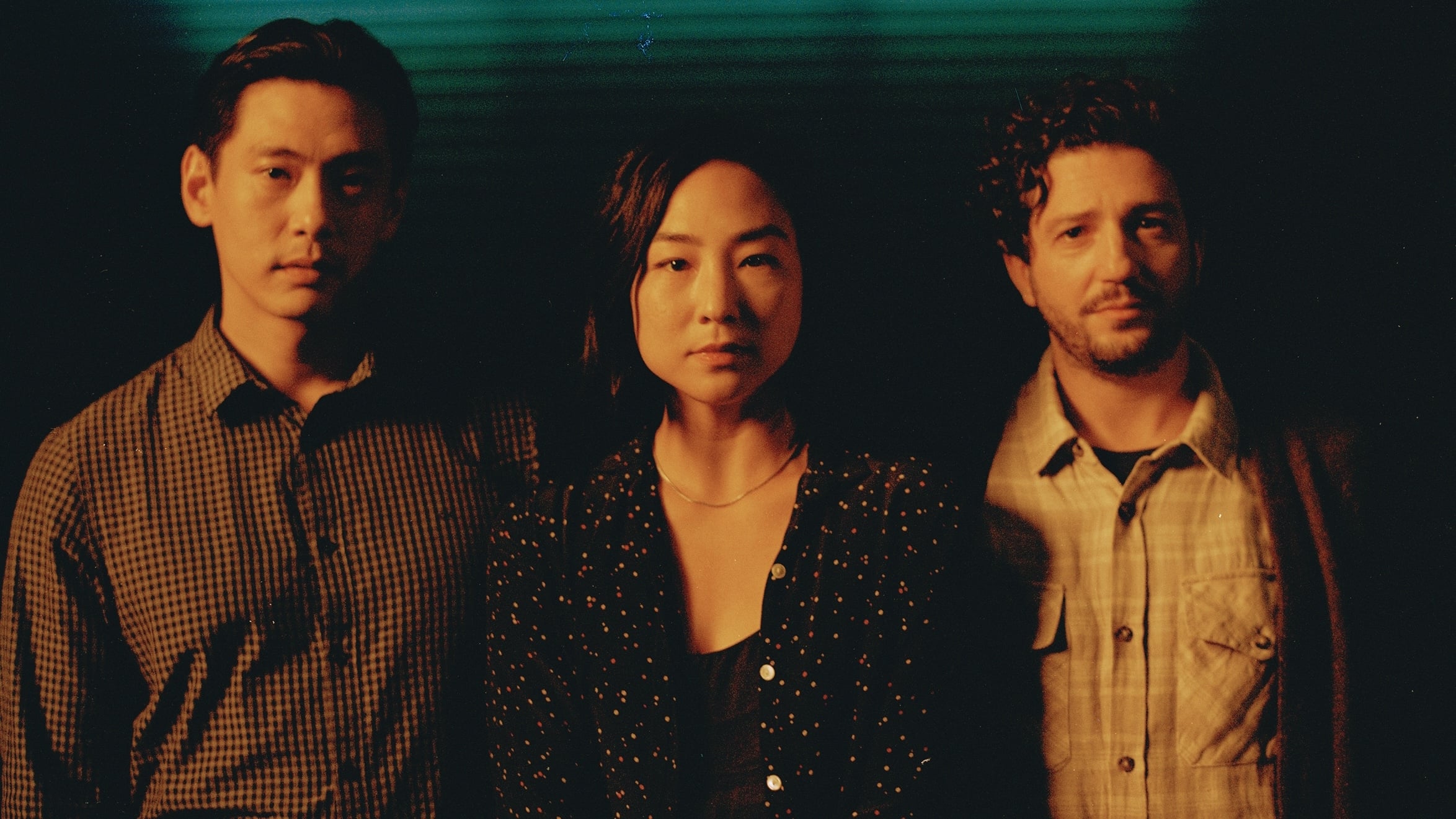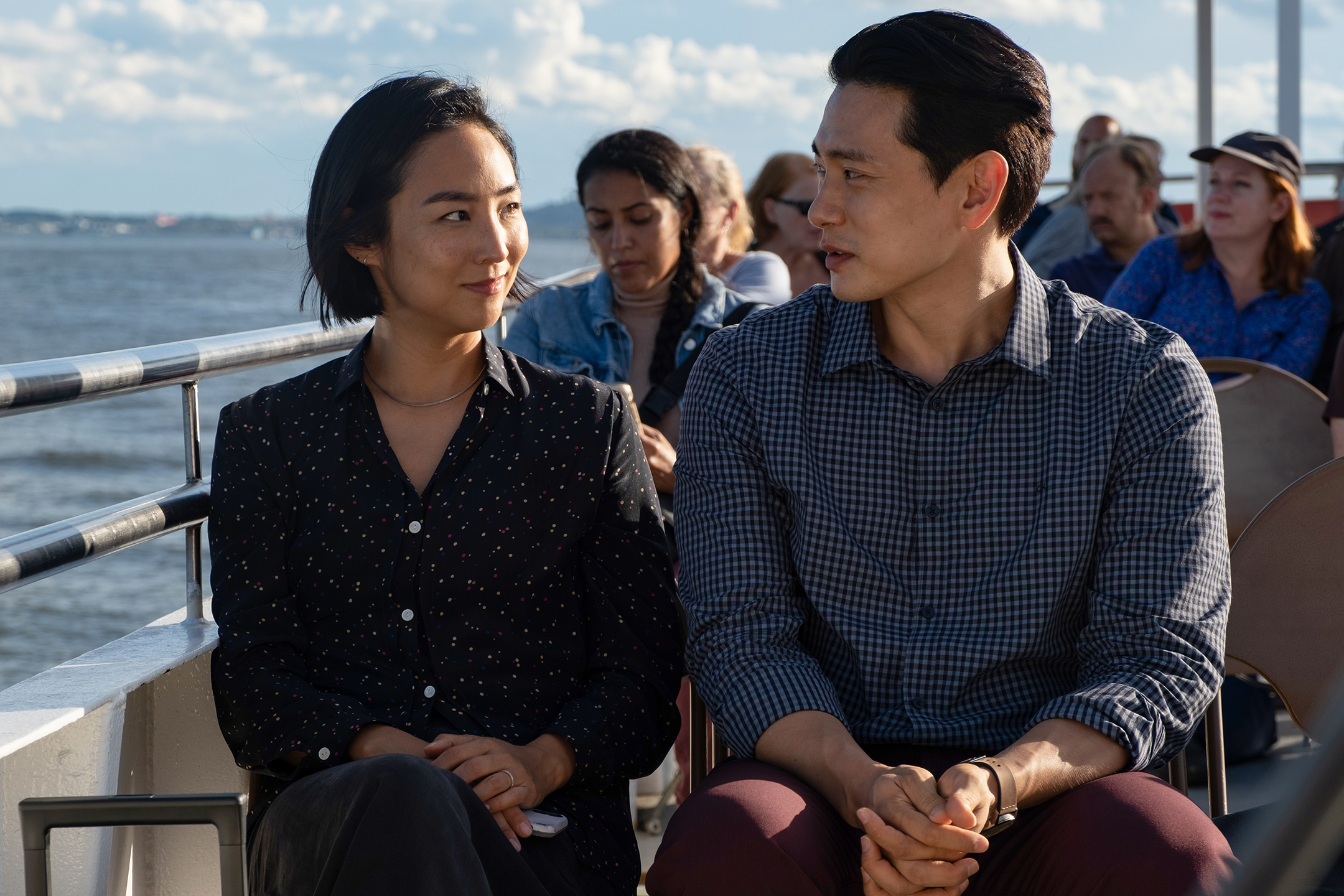
Is reincarnation a legitimate construct? Or do we live many lives in the same birth? If the latter is true, how does it affect connections that are entrenched deeply in your soul? Filmmaker Celine Song analyses these ideas in her heartbreaking romantic drama, Past Lives.
Unexpectedly so, the film made me re-examine the fascinating relationship ideology of “mirror souls”. Also known as “twin flames”, individuals with such a romantic connection are attracted to each other like the magnet to iron fillings. They complete each other, their minds, bodies, and souls are intertwined without external intervention. A good number of us, driven by ideas of love in a practical world, may reject this philosophy as one rooted in idealism and almost bordering on magic realism. Yet, the truth remains that the world has witnessed such irreversible bonds.
Song’s film kicks off in Seoul where Na Young (Seung Ah Moon) and Hae Sung (Seung Min Yim) are “mirror souls”. Inseparable in school, one of them immigrates to Canada before their bond would assume a definitive shape. The spark, however, remains brightly lit between Hae Sung and Na Young (now Nora).
Narrated in three time periods, Nora’s (Greta Lee) and Hae Sung’s (Teo Yoo) paths cross yet again. 12 years after their initial separation, the former is an aspiring playwright and the latter is a student of engineering. Distanced by geography, the duo is brought together by Facebook and Skype. Their wild chemistry is intact despite fluctuating internet speeds and different times zone. At what must be the crossroads of their lives, the couple – that isn’t yet dating officially – must make an informed choice. What are they? Where is this ‘relationship’ headed?
Cut to the present day, 12 years after their previous encounter, Nora and Hae Sung meet again. Nora is married to an affable Jewish man named Arthur (John Magaro). Hae Sung is in New York City for what he describes as a ‘vacation’ when we (and Nora) know this is his life’s greatest expedition. The sizzle is unblemished. Nora and Hae Sung know it isn’t something that would extinguish with a passionate night of lovemaking. Where would their chemistry leave Nora’s soulmate, Arthur, who is hopelessly in love with her?
“Is he attractive?”
“Are you attracted to him?”
Arthur poses the most basic yet important questions to Nora. She tries to be sensitive with her response but there’s only so much she can hide. In a very logic-driven discussion between the couple, Song establishes their altered status quo. Arthur, who would otherwise lazily cuddle his wife, is now lying in bed at a cautious distance from her. He understands the predicament. But, what would he do with it?

“I ended up here.”
“This is my life and I’m living it with you.”
Nora’s words may sound like pearls of wisdom to a logician’s ears but not to the idealistic and passionate Arthur. He wants his woman all for himself. The man analyzes the romance quotient in their strait-laced story and finds it devoid of drama and feeling in front of what she shares with the dapper Korean gent. Hae Sung, who in literary terms is ‘the love of her life’, has traveled across the seas only to catch a glimpse of her. Then again, if love is about walking into the sunset holding hands, Nora and Hae Sung have a rough road to get there.
Arthur’s apprehension is legitimate even as he casually discusses the possibility of his wife ‘running away’ with this mysterious man who is a better match than the awkward, not-at-all-Korean, everyday white man Arthur is. To Nora, the emotion isn’t new. The electricity is. The fondness lay hidden in her soul although she never quite expected their physical proximity to surface 24 years past their first meeting. What does she do with it now?
As for Hae Sung, he is in an alien land to seek closure. He is going through a rain of emotions that he processes with logic and not the heart. The love of his life, the woman who would change the way he exists, is a heartbeat way. One inch closer, they would immerse in an embrace they waited a lifetime. Hae Sung is a man who would never make that move. So, in what direction should he channel his passion?
In what must be similar to the “twin flames” philosophy, Past Lives examines the Korean concept of ‘in-yun’ – the word, as Nora explains, means providence or fate in the context of relationships. “If two strangers walk by each other in the street and their clothes accidentally brush, that means there have been 8000 layers of in-yun (fate) between them,” asserts Song with an assortment of supporting visuals.
Speaking of visuals, Celine Song frames Past Lives using a fascinating gaze. The camera (DOP: Shabier Kirchner), instead of cutting between close-ups and using over-the-shoulder shots, constantly tracks from one side to another. Some of them may not be the most aesthetic or cinematically adept of all, but they make us sink into the intimate exchange of glances and breaths.
ALSO READ: ‘Rajnigandha’: About a Fragrance That Smells Like Love
Even though the narrative has a woman in its epicenter, Past Lives is a plot-driven fare. The film begins from the perspectives of a couple of mysterious outsiders who look at the trio (Nora, Hae Sung, and Arthur) seated in a bar and make guesses about what they are to each other. Song’s shot-taking, too, often celebrates this outsider’s purview with several shots caressing the immediate environment first and later zooming into what must be a peripheral entity. For instance, this is how she chooses to introduce Arthur to us.

The dialogues form a mainstay in Celine Song’s film and their aching beauty glows luminously to elevate the film’s gorgeous drama. Even though occasionally immersed in contemplative ideas, the lines do not sound labored or superficial. My favorite stretch is the one where Nora tries to make sense of her connection with Hae Sung. They discuss how she, at the same time, can be ‘someone who leaves’ and ‘someone who stays’ – but to different people. The most striking of all metaphors is when they compare themselves to a bird and the branch it sat on.
It only helps that Song’s central trio is essayed by spectacular performers. Greta Lee’s Nora is a tricky part. Stellar writing notwithstanding, the film faces the risk of the woman coming off as a conflicted or, worse, a terrible person. The actor is so wonderfully in control of her emotions that it becomes easy to empathize with Nora. At the hands of an inferior player, Teo Yoo might have appeared as a timid, unwanted guest in Nora’s paradise. Yet, at all junctures, we welcome the man with the gentlest of embraces. Equally terrific is John Magaro whose vulnerable character contains the ability to make us laugh as well as tear us to shreds. If you wish to see what a great actor would do in a great screenplay, observe Magaro in the scene where he meets Yoo for the first time.
At its core, Past Lives is a romantic drama. Yet, the film’s meditative material comes with many exquisite layers. Celine Song masterfully studies human behavior which, in fact, is the result of complex mental math involving numerous factors with varying wattage. You observe how the heart, the head, the society, the fear of the inevitable future, the joys, the sorrows, the apprehensions, the desires, the insecurities, the impulses, the reflexes, and many forms of physical expression such as physical touch or a reassuring smile – pooling in to form the complicated spectrum that the human mind is. Celine Song’s delicate story tugs at the heartstrings as it emerges from a familiar, personal space.
Past Lives, in the most tasteful fashion, spells out several discomforting thoughts that traditional couples refuse to discuss. At some point in the film’s runtime, might as well in a derivative or abstract fashion, we see ourselves in the shoes of Nora, Hae Sung, or Arthur – or all of them. Celine Song does not offer a sermon or dictate what is right or wrong. She objectively addresses her protagonists’ truths thereby making the film an immensely gratifying experience and the craft on display catapults the film into the distinguished realm of instant classics.
Rating: ★★★★ 1/2

